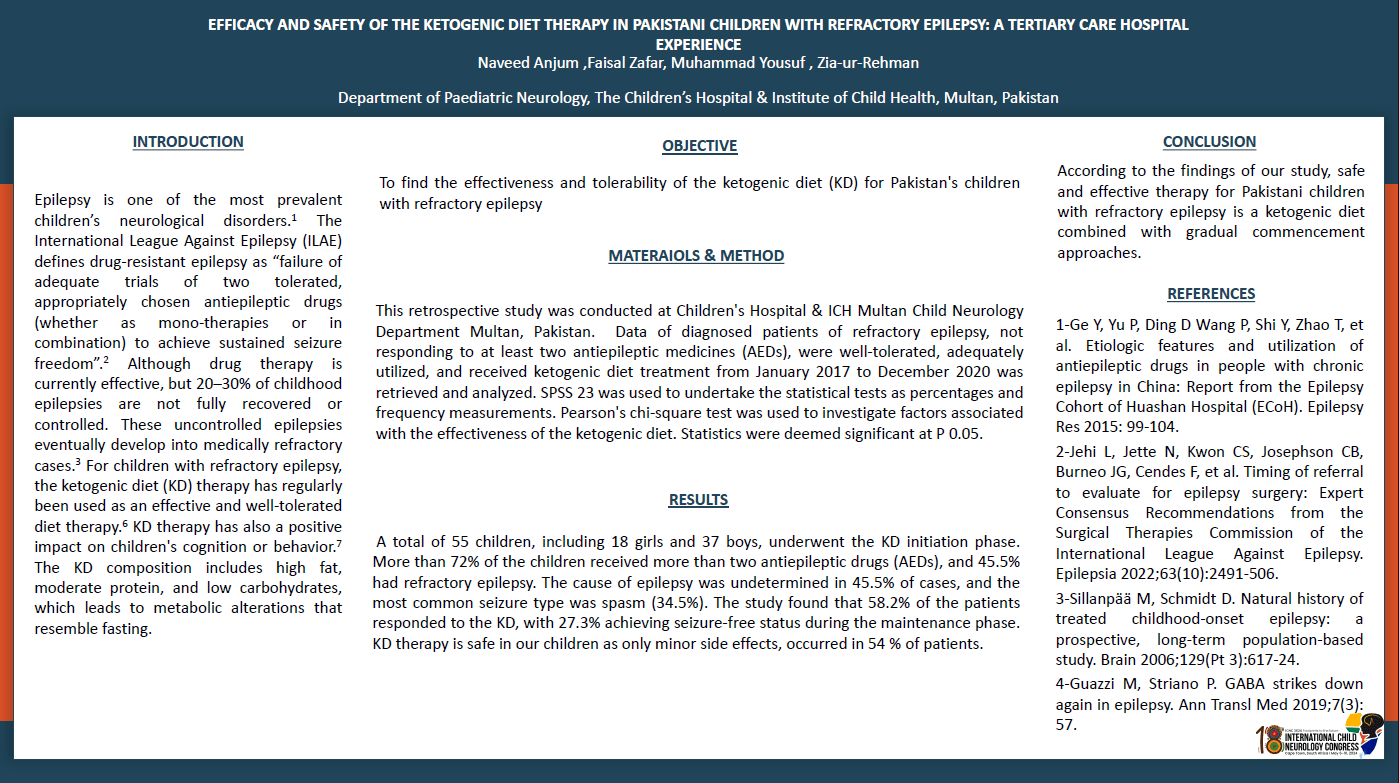Efficacy And Safety Of The Ketogenic Diet Therapy In Pakistani Children With Refractory Epilepsy: A Tertiary Care Hospit
OBJECTIVE: To find the effectiveness and tolerability of the ketogenic diet for Pakistan's children with refractory epilepsy. METHODS: The Children’s Hospital & ICH Multan, Child Neurology Department performed a single institution retrospective analysis from 2017 to 2020. We assessed the Ketogenic diet effectiveness and adverse effect frequency. SPSS 23 was used to undertake the statistical tests as percentages and frequency measurements. The mean and standard deviations depicted continuous variables. The Mann-Whitney U test or Pearson's chi-square test was used to investigate factors associated with the effectiveness of the ketogenic diet. Statistics were deemed significant at P 0.05 (two-sided). RESULTS: A total of 55 children, including 18 girls and 37 boys, underwent the KD initiation phase, with a mean age of 1.33 ± 0.474 SD. More than 72% of the children received more than two antiepileptic drugs (AEDs), and 45.5% had refractory epilepsy. The cause of epilepsy was undetermined in 45.5% of cases, and the most common seizure type was spasm (34.5%). The study found that 58.2% of the patients responded to the KD, with 27.3% achieving seizure-free status during the maintenance phase.KDT is safe in our children as only minor side effects, occurred in 54 % of patients. CONCLUSION: Children in Pakistan who have refractory epilepsy can benefit from using ketogenic diet therapy. It can be beneficial if used with a gradual initiation regimen. Early initiation of ketogenic diet therapy with good adherence is a sign of the effectiveness of the ketogenic diet.
Naveed Anjum
The CH & ICH Multan
Pakistan
Faisal Zafar
The CH & ICH Multan
Pakistan
Fawad Saleem
The CH & ICH Multan
Pakistan
